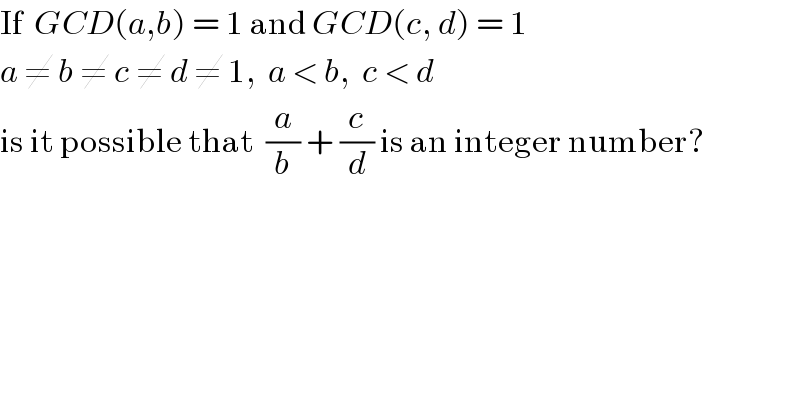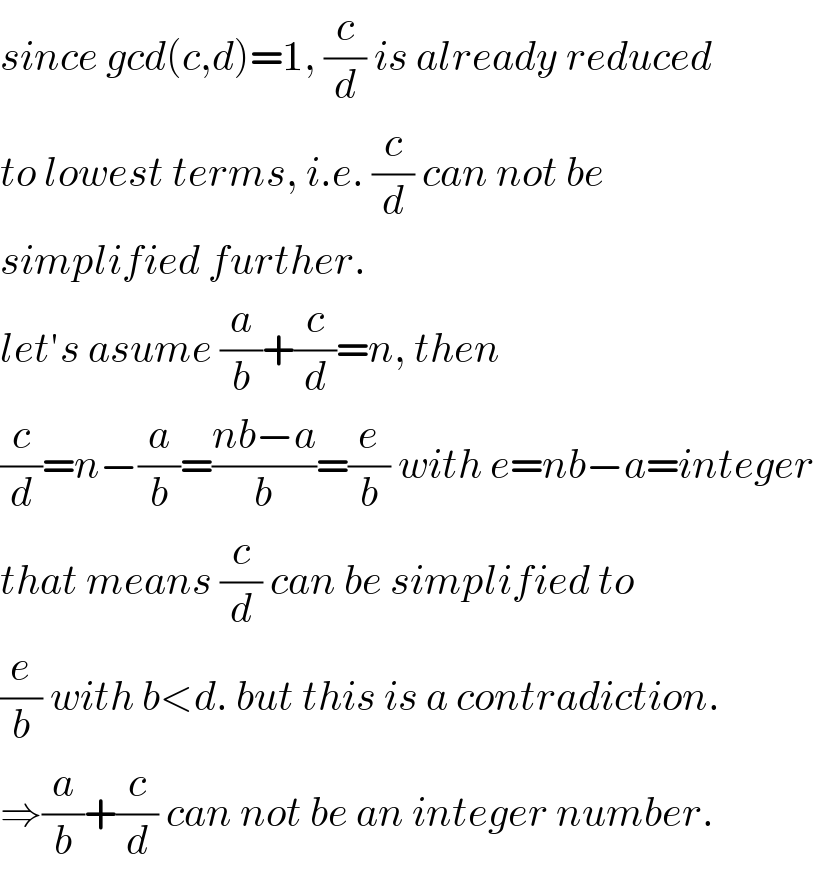
Question Number 26410 by Joel578 last updated on 25/Dec/17

$$\mathrm{If}\:\:{GCD}\left({a},{b}\right)\:=\:\mathrm{1}\:\mathrm{and}\:{GCD}\left({c},\:{d}\right)\:=\:\mathrm{1} \\ $$ $${a}\:\neq\:{b}\:\neq\:{c}\:\neq\:{d}\:\neq\:\mathrm{1},\:\:{a}\:<\:{b},\:\:{c}\:<\:{d} \\ $$ $$\mathrm{is}\:\mathrm{it}\:\mathrm{possible}\:\mathrm{that}\:\:\frac{{a}}{{b}}\:+\:\frac{{c}}{{d}}\:\mathrm{is}\:\mathrm{an}\:\mathrm{integer}\:\mathrm{number}? \\ $$
Answered by mrW1 last updated on 25/Dec/17

$${since}\:{gcd}\left({c},{d}\right)=\mathrm{1},\:\frac{{c}}{{d}}\:{is}\:{already}\:{reduced} \\ $$ $${to}\:{lowest}\:{terms},\:{i}.{e}.\:\frac{{c}}{{d}}\:{can}\:{not}\:{be} \\ $$ $${simplified}\:{further}. \\ $$ $${let}'{s}\:{asume}\:\frac{{a}}{{b}}+\frac{{c}}{{d}}={n},\:{then} \\ $$ $$\frac{{c}}{{d}}={n}−\frac{{a}}{{b}}=\frac{{nb}−{a}}{{b}}=\frac{{e}}{{b}}\:{with}\:{e}={nb}−{a}={integer} \\ $$ $${that}\:{means}\:\frac{{c}}{{d}}\:{can}\:{be}\:{simplified}\:{to} \\ $$ $$\frac{{e}}{{b}}\:{with}\:{b}<{d}.\:{but}\:{this}\:{is}\:{a}\:{contradiction}. \\ $$ $$\Rightarrow\frac{{a}}{{b}}+\frac{{c}}{{d}}\:{can}\:{not}\:{be}\:{an}\:{integer}\:{number}. \\ $$
Commented byJoel578 last updated on 27/Dec/17

$${thank}\:{you}\:{very}\:{much} \\ $$
